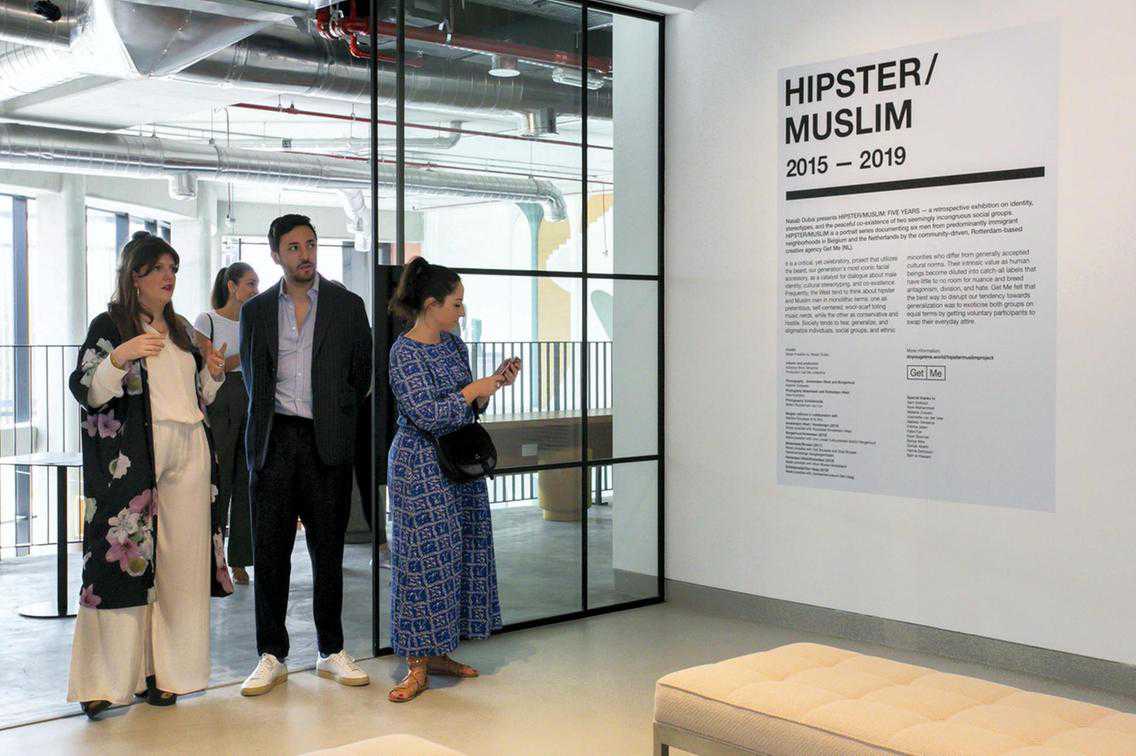Hipsters and Muslims pose side by side to challenge prejudice
28 March, 2019

Chairi and Maurino stand shoulder to shoulder. The men have many similarities: they both have beards, they are both musicians and they both live in the Netherlands. But despite their similar aesthetic, they also have some differences – one is a hipster, and the other is a Muslim.
Muslims and hipsters are among the most stereotyped subgroups in society and are often held up as opposites – one progressive, the other conservative. Both conjure up a certain image and many people around the world make their fair share of assumptions when they encounter the groups. And it’s those assumptions that have brought Chairi and Maurino, among others, together as part of the Hipster/Muslim Project.
What started five years ago as a simple photography project in the basement of one of Rotterdam’s gentrified neighbourhoods has now become a social movement, working to break barriers, encourage dialogue and help people to look beyond the stereotypes.
“The starting point is the beard; it’s a shared common ground that helps to highlight certain prejudices people might have about Muslims or hipsters. We built on this,” says Shirin Mirachor, founder of Get Me, the agency behind the Hipster/Muslim Project.
For the project, members from either group are paired up. Complete strangers, they are asked to swap clothes – an intimate act designed to invite each participant into the other’s life, offering them a deeper understanding of who the other person is, while helping to challenge any biases they may have. The result is a series of stark portraits, showing the two men standing side by side, opening themselves up to a better understanding of one another and leaving the viewer to wonder who is who. The images, each anchored with a comment from its subjects, are the perfect contrast of vulnerability and power, forcing their audience to take a deeper look at the people beneath the clothes.
“We all have beards, we are all men, 99 per cent of us are the same,” says Curd Maeseele, who participated in the project. “The only thing that is different is the colour of our skin or our religion. But that’s the thing – everybody talks about the one per cent that’s different … and that’s really disturbing.”
Maeseele, alongside fellow participant Qasim Arif and founder Mirachor, brought the Hipster/Muslim Project to the UAE for the first time this month, marking a new chapter for the project, which until now has been presented in a western European context.
“I thought it would be interesting to bring the project to the UAE because it’s viewing it in totally different circumstances. I’m very curious about the response,” Mirachor says. “The reaction in Europe has been very good, actually. It started as a very innocent photo project, but it has many layers; it makes the person who is viewing it want to dive deeper into the conversations and the personalities behind the photos, so we also wanted to create a bit of nuance in this whole conversation, because both hipsters and Muslims are becoming this very abstract concept – especially Muslims.”
Maeseele adds: “All I had to do was drink kombucha tea and become vegan, and I was hipster. But for Muslims, the stereotypes are much heavier. It weighs on them, it makes them other people in the eyes of the West, makes them act differently in rooms, in conversations. And we have to do something about that, you have to do something about that, we all have to do something about that.”
The Hipster/Muslim Project has been running for five years and has produced four photo series, with participants coming from Amsterdam-West, Rotterdam-West, Borgerhout and Molenbeek. All the series are currently on display at a retrospective exhibition at members’ club Nasab in Dubai.
And while the project will be viewed differently through the eyes of people living in the UAE – a progressive Muslim country and cultural melting pot – racism and stereotypes are a global problem, and the Hipster/Muslim Project is designed to help break down some of the barriers that still exist in every country.
“In terms of the impact of this work, I don’t know if it’s small or big – it’s a work in progress – but I know that the personal contact that we all have with each other is important,” says Arif, a Pakistan-born Muslim living in the Netherlands. “I’m not sure how it will affect everyone in the UAE, but I hope it’s positive, because it has been for me.”
TAG(s):
